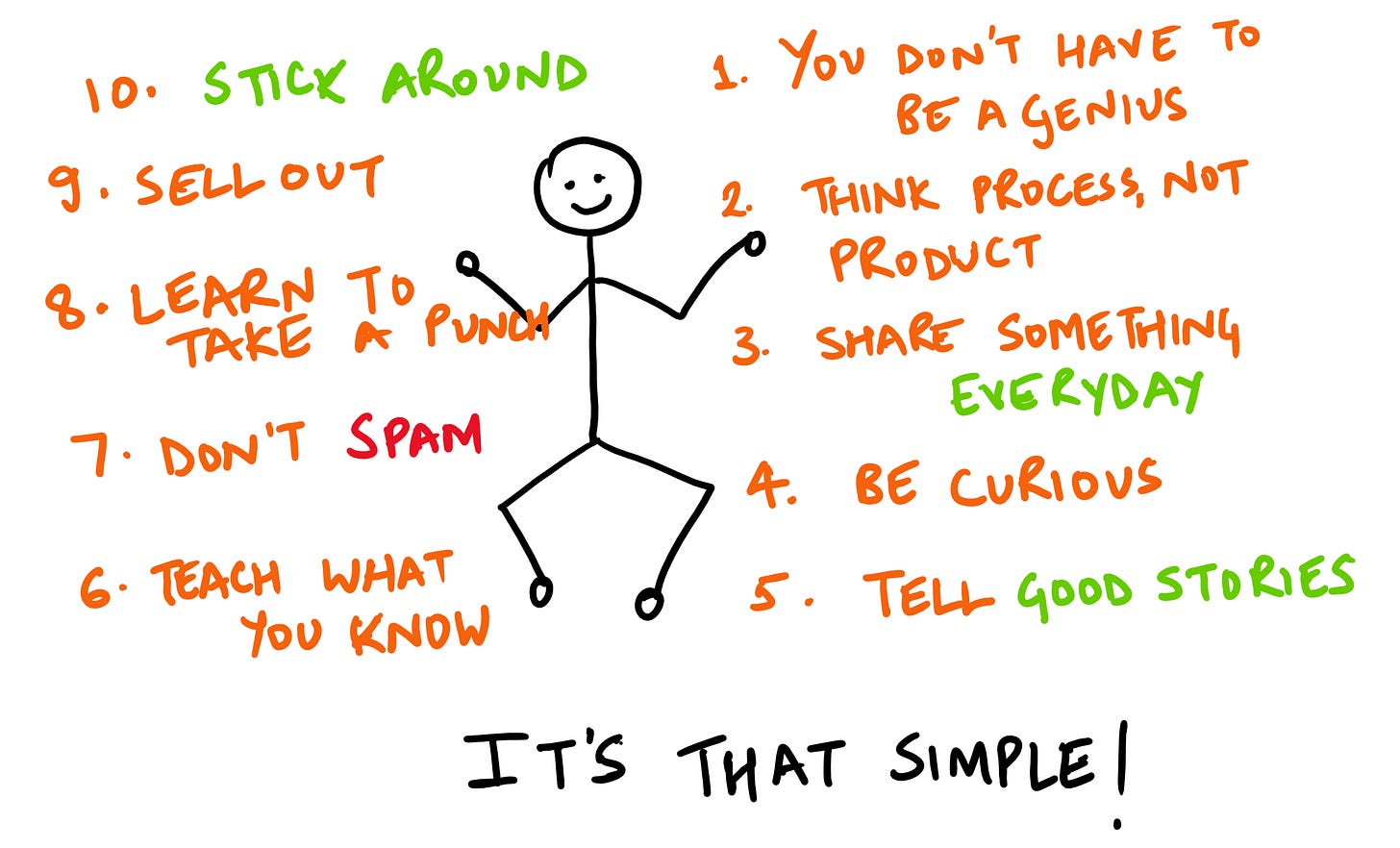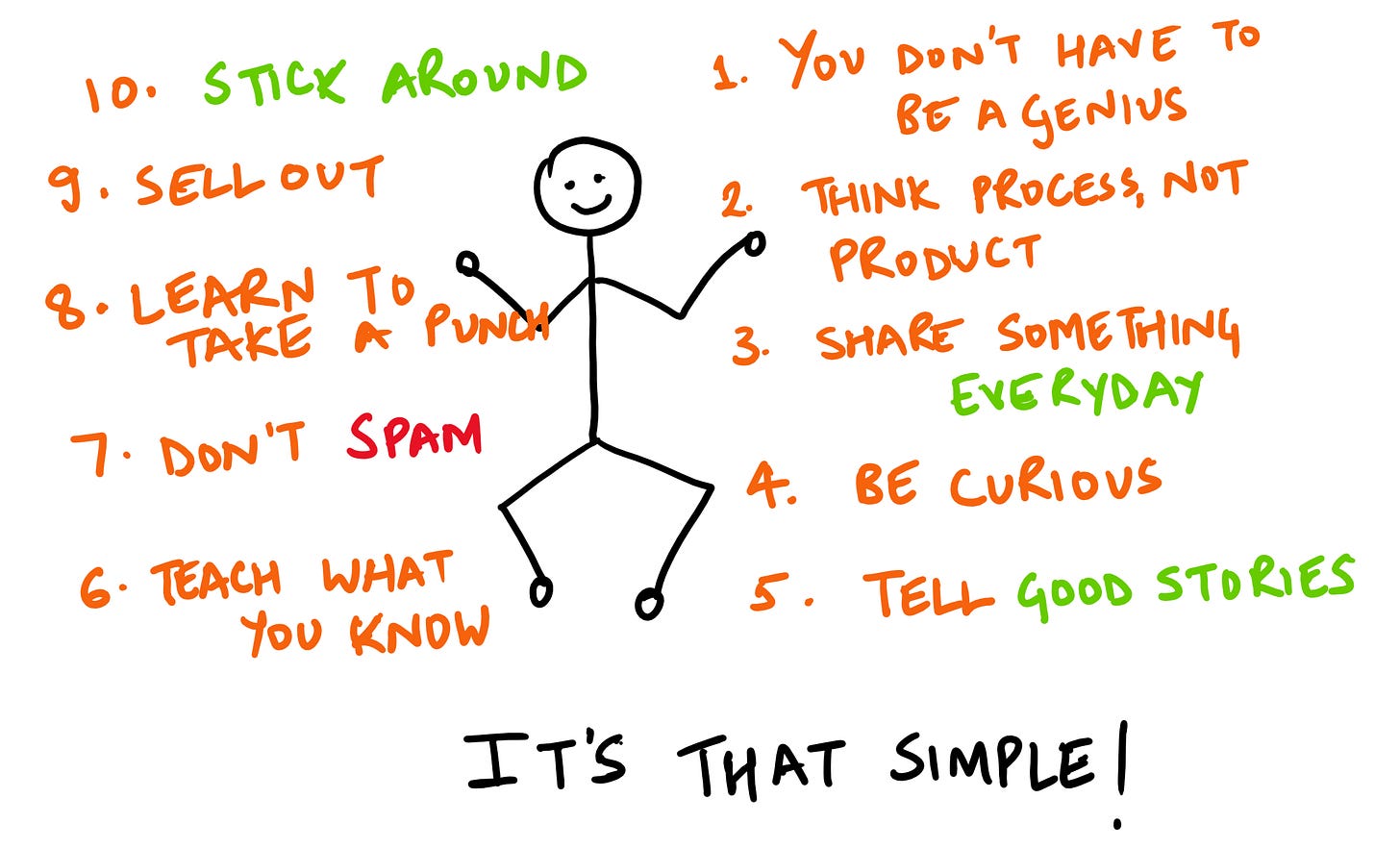
I recently had a chance to read the book – Show Your Work, by Austin Kleon. To say that the book has been an eye-opener will be an understatement.
Barely a hundred pages long, this was the book I needed at this time.
I have been thinking about what to write consistently, now that I’ve finished the Level Up series. This book helps me create a system for my overarching strategy towards writing.
While I’m still creating a “system” for publishing regularly, here’s what I took away from the book.

A couple of highlights which I liked
On sharing your process
An excerpt from the book —
We’re not all artists or astronauts. A lot of us go about our work and feel like we have nothing to show for it at the end of the day. But whatever the nature of your work, there is an art to what you do, and there are people who would be interested in that art, if only you presented it to them in the right way. In fact, sharing your process might actually be most valuable if the products of your work aren’t easily shared, if you’re still in the apprentice stage of your work, if you can’t just slap up a portfolio and call it a day, or if your process doesn’t necessarily lead to tangible finished products.
I’ve been writing fiction consistently for more than 6 years at this point. But I’ve always struggled to build an audience. The reason – I absolutely detest “marketing” what I write. Sure, I can go and post a link on social media, but it is not a natural strength of mine to go to a thousand people and talk to them about my book. It feels like I am boasting about my book.
The paragraph above changes that for me. It basically says that there is always something you can share about what happens behind the scenes, and this information will help you find your audience.
As I pondered about what I could share with others, I realized that there’s actually quite a bit. For eg: having published 2 books and several short stories, I can share my journey of publishing, what I have learned in the process and how these learnings could benefit others.
Earlier this year, I had written a long post about all of my online “experiments”. I think that is the right approach to sharing content. Expect a lot more of these.
Also, as I write more short stories, like the Level Up series, I realize that writing “Behind the Scenes” is actually important. The reason —
No, words don’t speak for themselves
Artists love to trot out the tired line, “My work speaks for itself,” but the truth is, our work doesn’t speak for itself. Human beings want to know where things came from, how they were made, and who made them. The stories you tell about the work you do have a huge effect on how people feel and what they understand about your work, and how people feel and what they understand about your work affects how they value it.
This was a big realization. If you think more about it, any specific moment you remember is special because there’s a story associated with it. For example, you wanted something desperately, you achieved it. How you did it makes up the story. And this is the reason why you remember that photo you took, or that cake you baked, or the joke you thought of!
By telling the stories behind my stories, I hope to share my process, and in turn, gather like-minded folks.
To conclude…
Make stuff you love and talk about stuff you love and you’ll attract people who love that kind of stuff. It’s that simple.
No explanation needed for this quote.
To learn more about the book here’s a detailed summary, or you can find the book on Amazon.
If you want to receive similar book notes, please add your email address here. I won’t spam you with unnecessary emails 🙂